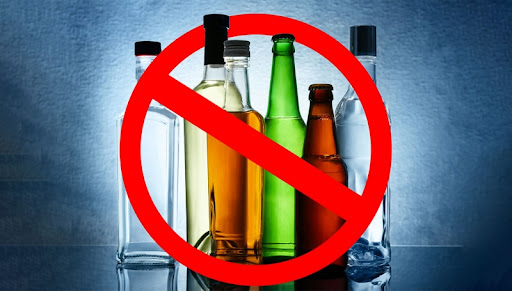By Felicia Nwosu
In a bid to help minimize children’s exposure to age-restricted ads in mixed-age channels and platforms, many brands and agencies are coming up with urgent measures to ensure that children are protected from marketing of alcohol content.
Major advertising agencies have joined forces with global drinks brands to abide by new standards aimed at stopping children from seeing alcoholic advertising by influencers. The voluntary standards signed by agencies, including McCann, Publicis, Havas and Dentsu, were drawn up by the International Alliance for Responsible Drinking (IARD), which represents major global alcohol producers and described the initiative as a “world-first”.
In all, a total of 13 advertising, public relations and influencer agencies agreed to stick to the rules, which include using platforms with technology to check a person’s age – or alternatively using influencers who are at least 25 years old and who “primarily appeal to adult audiences”. The pledge includes a commitment to carrying out due diligence and “ensuring influencers have no reputational association with harmful drinking”.
Back home in Nigeria recently, championing the cause of underage drinking, a group known as Distillers and Blenders Association of Nigeria (DIBAN) begun a campaign against underage drinking. The group maintains that sale of alcoholic beverages to persons below the age of 18 should be discouraged, while employing advocacy campaign programmes in order to strengthen the efforts towards underage drinking and improving responsible drinking in collaboration with civil society groups under the supervision of the National Agency for Food, Drug Administration and Control (NAFDAC), Consumer Protection Agency and Federal Ministry of Health.
Fielding questions in separate interviews with MARKETING EDGE, some advertising professionals in Nigeria expressed similar views stating that mainstream media owners still abide by the rules, while blaming digital platforms for the proliferation of unregulated alcoholic advertising.
Bunmi Oke, CEO of Ladybird Ltd, while giving her view, agreed that children need to be protected from information that only requires adult understanding. The advertising Amazon blamed the proliferation of digital technology and collapse of time zone for changing the narrative over time. The Ladybird boss urged advertising practitioners to ensure they abide by the advertising rules and guidelines as stipulated by law.
“I think that digital technology has brought a problem in that area. Because of digital technology, time zone has been collapsed. I can watch a webinar in the U.S at my own time here in Nigeria, meanwhile, they advertise during that period. We should do what is right. If they say, don’t show alcohol advertising at certain hours or programme, we should not do that; it is even psychological because advertising deals a lot with information on issues of mind. The most important thing is for us to realize that, we have younger children who have not been exposed to a lot of things.”
The Ladybird boss encouraged all hands to be on deck in the enlightenment and awareness creation of the pros and cons of alcohol to the younger generation to help them make informed and intelligent decisions. “There should be more openness on discussions on issues relating to alcohol and sex education and not leaving everything to advertisers in order to protect our young ones. These children are intelligent, so let us always caution them to be guided and encourage them to ensure they ask for clarity of issues.”
On his part, advertising icon, Steve Babaeko, Chief Creative Officer /CEO of X3M Ideas and President of the Association of Advertising Agencies of Nigeria (AAAN), reaffirmed that Nigeria advertising ecosystem is operated under a stringent framework manned by an effective regulatory body, which is the Advertising Practitioners Council of Nigeria (APCON). The highly cerebral advertising expert therefore maintained that rules and regulations are adhered to without compromise.
His words: “The APCON law is quite specific about the advertising of alcohol. People who play in that industry have been complying, and where there are no compliance, they will definitely hear from the regulator, which is APCON. There are so much that we can do to protect the children, because drinking responsibly and 18+ is big when it comes to some of these regulated consumable items like alcohol. We will continue to study the situation and look at our own peculiarity in Nigeria, to come up with ideas, in conjunction with people in that industry, to make sure we protect the future of this country, which is the children.”
The seasoned advertising professional, who expressed concern on the impact of various digital contents on the children, also called for collaboration between agencies, alcoholic brands and influencer marketers to join in the fight to ensure that alcohol marketing across all forms of media is responsible.
“If you look at it from the mainstream media owners, some of these laws are given, where the loopholes are today, from my own point of view, is within the digital media space. Unless we are able to find a way to get a consensus around every stakeholder within that media space to say, this will be the rules of engagement way forward, we will still continue to have a bit of loose ends.”
The advertising guru, therefore, reiterated the need for a collective approach by both advertising agencies and alcohol brands to start engaging in a deeper conversation that will change a wider narrative in protecting the future of the next generation.




Comment
No comments found.